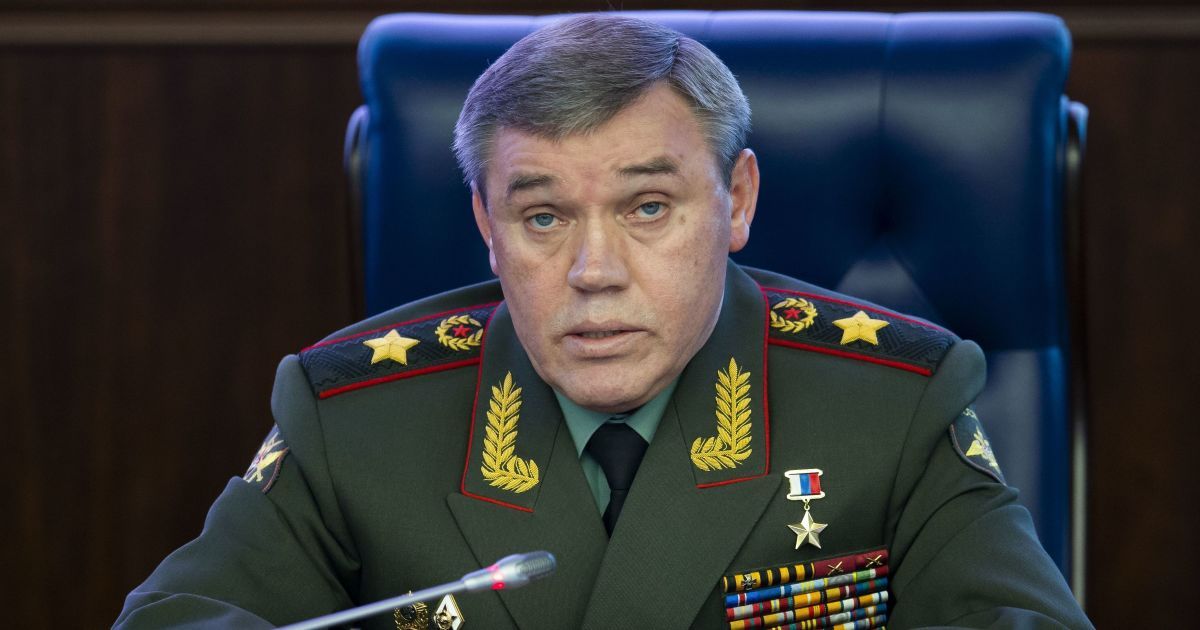The Chief of the General Staff of the Armed Forces of the Russian Federation, General Valery Gerasimov, has once again taken over the management of Russia's military operations in Ukraine, having convinced his boss Putin that his predecessor, Serhiy Surovikik, was too passive in this position.
This is stated in the New York Times article.
According to the analysts, the publication, Putin appointed Gerasimov as the commander of the occupying group of the Russian army in Ukraine in order to solve the problems of the Russian army.
However, it was General Gerasimov's strategy that led to Russia's problems.
Moscow still does not have the troops, ammunition or equipment needed for the massive offensive that Putin is calling for.
The Pentagon found out that the number of Russian generals who were dismissed or demoted during the 11 months of the war is constantly increasing.
Currently there are nine of them.
"It's like a reality TV show. I think what's more telling is that the Russians still haven't figured out how they're going to lead the fight, and I think the dysfunction among Russian commanders is pretty deep," the US deputy defense secretary said. Colin Cal.
The publication notes that since the start of the full-scale invasion, Putin has achieved few of his goals.
Russian troops failed to capture the capital Kyiv;
President Volodymyr Zelensky is still in power;
Ukraine has closer ties with the West than ever;
and despite the signs of some cracks, the NATO position remains united.
Even Russia's more limited goal of capturing all of Donbas remains unattainable.
Why was Gerasimov appointed?
Putin turned to Gerasimov to sort out the mess.
For 10 years, Gerasimov was believed to have worked on the modernization of the Russian armed forces as the chief of the general staff of the armed forces.
In particular, he studied the experience of Americans in Afghanistan, Iraq, Syria, the former Yugoslavia and Libya.
Gerasimov increased the tactics of irregular warfare, thinking that he was copying the tactics of the Americans.
After all, this position helped the Russian Federation to seize Crimea and fight in Donbas until 2022.
But it turned out to be completely ineffective, for example, in the battles near Kyiv.
A full-scale war in Ukraine required a different maneuver: offensive campaigns of a large number of ground forces operating in different areas.
General Gerasimov was ineffective there.
General Gerasimov himself almost fell victim to poor planning by his subordinates when he narrowly avoided being killed in a Ukrainian strike while visiting his troops in late April.
"This is due to the lack of serious training and operational experience in the Russian Ministry of Defense. When you get into a real war, as in Ukraine, all their shortcomings are immediately visible," said Ben Godges, a retired lieutenant general and former commander in chief US Army in Europe.
Why was Surovikin removed?
The results of these shortcomings were demonstrated last November, when General Surovikin announced Russia's retreat from Kherson, calling it a "difficult" decision.
Putin was not present during Surovikin's speech.
The dictator's absence, US and NATO officials said, reflected his desire to distance himself from the stunning military defeat.
But General Surovikin, according to American servicemen and officials of the Biden administration, strengthened Russia's shaky position in Ukraine, especially in the south.
He insisted that the Russian troops leave Kherson and made a retreat that minimized the losses of the Russians.
He then focused his efforts on what the US military calls "defense in depth."
Although his defensive moves raised concerns in Washington that Russia would be able to withstand renewed Ukrainian offensives, the so-called "military correspondents" of the Russian Federation reacted quite differently, criticizing the Russian military command for retreating from Kherson.
US and allied officials believe that Gerasimov and Russian Defense Minister Sergei Shoigu exploited Putin's skepticism about Surovikin's defense position.
According to their information, Gerasimov and Shoigu suggested returning to the "offensive with the potential initial goal of taking Kramatorsk in the east.
General Gerasimov's promotion was also intended to deflect criticism from "military correspondents" and to curb the growing power of Yevgeny Prigozhin, head of the Wagner mercenary group.
The publication believes that Putin will demand from Gerasimov to return to active offensive actions, as a result of which the latter will be under great pressure.
We will remind that on January 11, the Chief of the General Staff of the Armed Forces of the Russian Federation Valery Gerasimov was appointed the commander of the United Group of Occupation Forces in Ukraine.
Serhii Surovikin, who stayed in this position for only three months, became Gerasimov's deputy.
Military analyst Oleksiy Hetman explained how Gerasimov will change the tactics of the task of mass missile strikes.
Read also:
Ukraine news
War in Ukraine
News of Ukraine: video
Subscribe to our
Telegram
and
Viber
channels .
